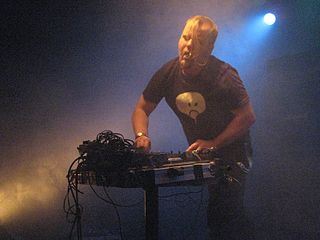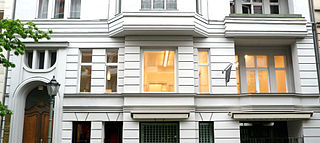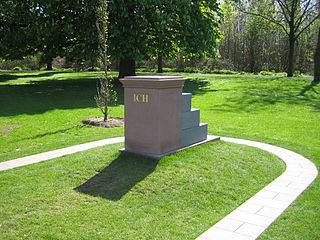History
The foundation
The paper's first issue was published in Cologne in 1980 by a small group of writers who decided to found their own music paper: they were Gerald Hündgen, Clara Drechsler, Dirk Scheuring, Wilfried Rütten and Peter Bömmels. They first considered naming it 555 but finally pitched on Spex – which means "glasses" in English slang. The name Spex reminds of the then very famous punk band X-Ray Spex. The magazine was initially distributed in record stores and railway stations. The articles were not as elaborate as those in comparable magazines, as the objective was to present new young artists. Four issues were published in the first year. Spex turned monthly in 1981. In 1983 its main competitor, Sounds , closed down. That paper addressed very modern artists and tendencies like punk, new wave and the German new wave. Most of its editorial team was hired to work for Spex, like Diedrich Diederichsen (forthcoming editor) or Olaf Dante Marx. The articles took a new turn, more theoretical and more literary.
The fame
Around 1983, Spex gained recognition as a major music magazine thanks to the quality of its editorial line, competing with British music magazines such as the New Musical Express or The Face . The magazine's strength was to focus on pop music in the context of pop culture, while still covering social and political issues in a humorous and ironic tone. Some Spex writers saw their profile rise as they started writing opinions columns, such as Diedrich Diederichsen, Rainald Goetz, or Clara Drechsler's editorials, which earned her comparisons to Julie Burchill. Spex is not only a platform for new authors but also for new trends. One of the first publications to put Madonna on their cover (November 1983), the magazine also opens its pages to debate on contemporary technical and social issues such as "girlism".
However, because of its huge freedom Spex was inclined to speak only about topics that interested the editorial team, and to ignore other newsworthy trends. Some good artists were rejected on principle. The Smiths, for example, never appealed to Spex, whereas Die Toten Hosen have always been the object of graceful praises. Diedrich Diederichsen, the editor from 1985 to 1991, brought the spotlight on American indie punk bands (predominantly from the SST Records) at the expense of other kinds of pop music like house or hip hop. At the end of the year 1999, after nineteen years of existence, Spex went bankrupt and was bought by Piranha Media. This signalled the end of self-production and the magazine was completely restructured as many employees chose to leave. Critics saw the buy-out as a loss of Spex's independence and predicted that it would become a mouthpiece of the music industry.
The removal
In December 2006, parent company Piranha Media announced the relocation of the editorial staff from Cologne to Berlin. Editor Alex Lacher claimed it was necessary for practical reasons (being closer to the music industry in Berlin), and for financial reasons: the loss in revenue caused by the prohibition of tobacco advertising in German newspapers obligated them to close one of their three editorial offices (Berlin, Cologne, and Munich). This decision has sometimes been seen as a pretext taken by Piranha to get rid of the editorial staff. The move, first planned in the summer of 2006, was carried out in December; the Cologne staff who resisted the move were fired after the publication of the January 2007 issue. Max Dax was named as the new editor and Spex settled in the Kreuzberg neighbourhood, where Groove , a Piranha publication dedicated to techno music, was already located.
The new Spex
In March 2007, the first issue of the new Spex from Berlin came out. At that time, the paper became bi-monthly. This choice was driven by the in-depth transformation of the magazine's content and the decision to emphasise analysis of wider musical and artistic trends over news coverage. Spex is no longer focused on listing new releases, but also on critical analysis of modern social evolutions. It has more pages, longer articles, and fewer but more detailed record reviews. The conditions of the production of art are a topic of interest, with special reports on globalisation, the rise of digital culture, depolitisation and the difficulties of the music industry. There are many reasons for those editorial changes. In the last years of the Cologne period, readers complained about a degradation of the editorial quality, claiming that the magazine was losing its trademark wit and just compiling record reviews indifferently every month. In that sense, Spex was no longer a voice distinct from other music magazines such as Intro , Uncle Sally or Musikexpress . In addition, the financial difficulties of the music industry, meaning declining ad buy figures, might have decided Spex to diversify the subjects covered. Today, Spex in Berlin has outgrown the initial difficulties, with a solid financial situation and positive feedback from its readers and peers: with an 18,400 circulation in early 2007, it grew to 21,349 copies one year later, a 14% raise. (source : (IVW)).
In issue #383 released on 15 October 2018 it was announced that the issue to be published on 27 December 2018 would be the last number.

New Musical Express (NME) is a British music, film, gaming, and culture website and brand. Founded as a newspaper in 1952, with the publication being referred to as a 'rock inkie', the NME would become a magazine that ended up as a free publication, before becoming an online brand which includes its website and radio stations.
Dark wave is a music genre that emerged from the new wave and post-punk movement of the late 1970s. Dark wave compositions are largely based on minor key tonality and introspective lyrics and have been perceived as being dark, romantic and bleak, with an undertone of sorrow. The genre embraces a range of styles including cold wave, ethereal wave, gothic rock, neoclassical dark wave and neofolk.

Helmut Josef Geier, known professionally as DJ Hell, is a German DJ.

The Frankfurter Rundschau (FR) is a German daily newspaper, based in Frankfurt am Main. The Rundschau's editorial stance is social liberal. It holds that "independence, social justice and fairness" underlie its journalism. In Post-war Germany Frankfurter Rundschau was for decades a leading force of German press. Die newspaper was one of the first, which get licencened by the US military administration in 1945 and had a traditional stabel social democratic, antifascist and trade union stand. Starting with the decline of printed daily newspapers in the 2000s, the FR changed ownership several times, reduced its editorial team dramatically and today has little national significance.

Marianne Joan Elliott-Said, known by the stage name Poly Styrene, was an English musician, singer-songwriter, and frontwoman for the punk rock band X-Ray Spex.

CCM Magazine is a twice-monthly online magazine focusing on contemporary Christian music, published by Salem Publishing, a division of Salem Communications.
Popkomm was an international trade show for the music and entertainment business during the 1990s and 2000s, and also integrated a congress and festival. It was held in Cologne for most of its existence, later moved to Berlin with entries from at least 55 other countries.
German punk includes a body of music and a subculture that have evolved since punk rock became popular in Germany in the 1970s. Within the subculture of punk in Germany, a style of music called Deutschpunk was developed; this style of music has developed distinctly from hardcore punk, and includes lyrics in German as well as a fast tempo. In the punk scene in Germany, some bands play music in the Deutschpunk style, while other German punk bands pursue various other styles of punk music.

The annual CTM Festival is a music and visual arts event held in Berlin, Germany. Founded in 1999, the festival originally focused on electronic music, but has since evolved to cover a wide range of genres under the banner "Festival for Adventurous Music and Art".

Capital is a German-language monthly business magazine published by Gruner + Jahr in Hamburg, Germany.

Weltklang is a German electronic music project founded by Austrian musician Thomas Voburka in West Berlin in 1980, using a fictional East German band biography. After a hiatus, Voburka reformed the project as a duo with René Steuns in 2004.
South Indies is a rights and publishing label established in Christchurch, New Zealand, in 1984 as a vinyl records label and small book publisher. It released vinyl, books, cassettes and video-cassettes before moving into the leasing of material to distributing labels, and the protection of existing copyright. It subsumes various "one-off" projects and imprints such as Alpha Books (NZ), Tank Publishing, 5 to 12 publishing and some early Titus Books titles. It has entered into collaborative or licensed releases with enterprises Powertool Records (NZ), Sophomore Lounge (USA), Grapefruit (USA), Partizanska (Serbia) and Zelle (Austria). It has facilitated use of existing artwork for publications such as In Love With These Times and, more recently, a 92-page colour illustrated artbook dedicated to the artists of the early Flying Nun period, Hellzapoppin.

Diedrich Diederichsen is a German author, music journalist and cultural critic. He is an intellectual writer at the crossroads of the arts, politics, and pop culture.

Galerie Buchholz is an art gallery specializing in international contemporary art with exhibition spaces in Cologne, Berlin and New York City. The gallery was founded in Cologne in 1986 by Daniel Buchholz, and today is run jointly with Christopher Müller.

Pop journalism is a form of journalism, that appeared under the influence of the American New Journalism in the mid-60s in Germany and coined the writing right down to the literature. This was most evident in Jörg Fauser’s writing.
Roadrunner was a monthly Australian music magazine based in Adelaide, South Australia. The magazine was founded by Stuart Coupe and Donald Robertson and forty-eight issues were published between March 1978 and January 1983.

Mosaik 2014 is a full length studio album by electronica group Kreidler, released in October 2009. The album contains 10 songs on the CD version, and 8 on the vinyl version. It was the first release of the band after a hiatus of 5 years.
Mass media in Germany includes a variety of online, print, and broadcast formats, such as radio, television, newspapers, and magazines.
Sascha Lazimbat is a German entrepreneur, lawyer and music journalist. After writing primarily about electronic music in the 1990s, in 2004 he founded the company Zebralution together with Kurt Thielen as the first digital distributor for indie labels in Europe. In December 2019, GEMA acquired a majority stake in Zebralution.

Clara Drechsler is a Cologne author and translator who helped shape German pop journalism in the 1980s.













